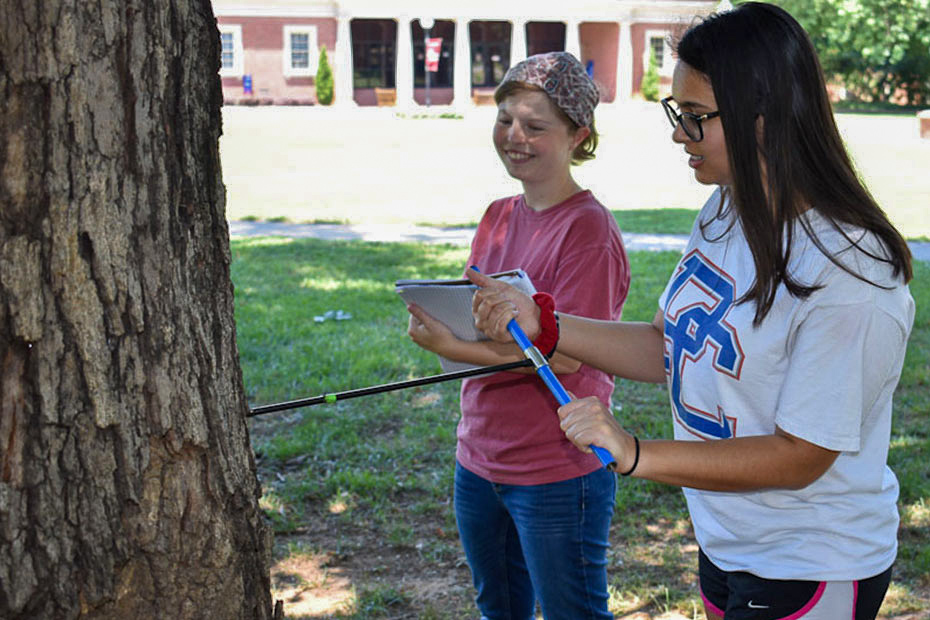Students Research Over the Summer

This summer, you can find Adrianna Cody, of Enoree, S.C., and Sharmila Samuel, of Greenville, S.C., either outside coring trees or in one of the labs of Lassiter Hall. They’re two of 19 PC students who are spending the summer months researching while regular classes aren’t in session.
Cody and Samuel are working with biology professor Dr. Mike Rischbieter on their research project. They’re comparing trees on campus, in Clinton, and in Columbia to see if urbanization affects tree growth.
The research experience will prove valuable as both look to go to graduate school after their upcoming senior year.
Cody, who plans to be a research pharmacist, enjoys how research helps her sharpen her problem-solving skills.
“Research teaches you how to adapt when you run into a wall in your research, you don’t know which way to go, or you realize that something you’ve done is incorrect,” Cody said.
Samuel, who has her sights set on becoming a dentist, enjoys what research offers outside the classroom.
“I like the one-on-one individual attention, and it’s so much different than a classroom setting because it really pushes you,” Samuel said. “In class, you’re more focused on learning information for a test.
“When you research, you’re more focused on learning information so you can make some kind of conclusion or hypothesis and then test it.
“It challenges you to think differently and look outside of what you find in a classroom setting.”
Research at a Liberal Arts College
Cody and Samuel are two of 10 students conducting research as PC Summer Fellows. These students are paid a stipend and spend eight weeks conducting a research project. All PC Summer Fellows work with a faculty mentor, like Dr. Rischieter, who is available to answer questions during the process and help guide the research.
Another nine students are conducting research as part of the South Carolina IDeA Networks of Biomedical Research Excellence (SC INBRE) program. PC is one of 13 predominantly undergraduate institutions in the state that participate in the program.
Dr. Stuart Gordon, a PC biology professor and director of PC’s chapter of SC INBRE, says the program offers “a great liberal arts experience.”
“You have to have a diverse knowledge base to do the level of research these students are doing,” Gordon said. “You have to be able to communicate your results and what you propose to do in writing. And you have to get along with people because hardly anybody’s working in a lab by themselves.
“SC INBRE is a good way to incorporate a liberal arts education into a scientific experience.”
“Build comradery and bounce ideas”
Gordon also says summer is the perfect time for students to focus on research and collaborate.
“It’s great that everybody’s on campus and together,” he said. “Students and professors too build comradery and can bounce ideas off one another.”
Students and professors get together every Wednesday for lunch. Then, they have a chance to share how their research is going and learn from a professor who shares tips on research.
Already this summer, the SC INBRE student researchers attended the Academic Leadership and Career Development Workshop at the University of South Carolina School of Medicine on June 17.
There, they learned from and networked with fellow undergraduate students, graduate students, and professors.
PC Summer Fellows and SC INBRE researchers will present their research at the Summer Research Symposium on Wednesday, July 24 on the PC campus. The day-long series of research presentations lasts from 9:30 to 4.
Learn More
Research is one of the opportunities PC students have to learn outside the classroom. If you want to learn more about what students learn inside the classroom, check out the majors, minors and other programs that can prepare you for life after college.
